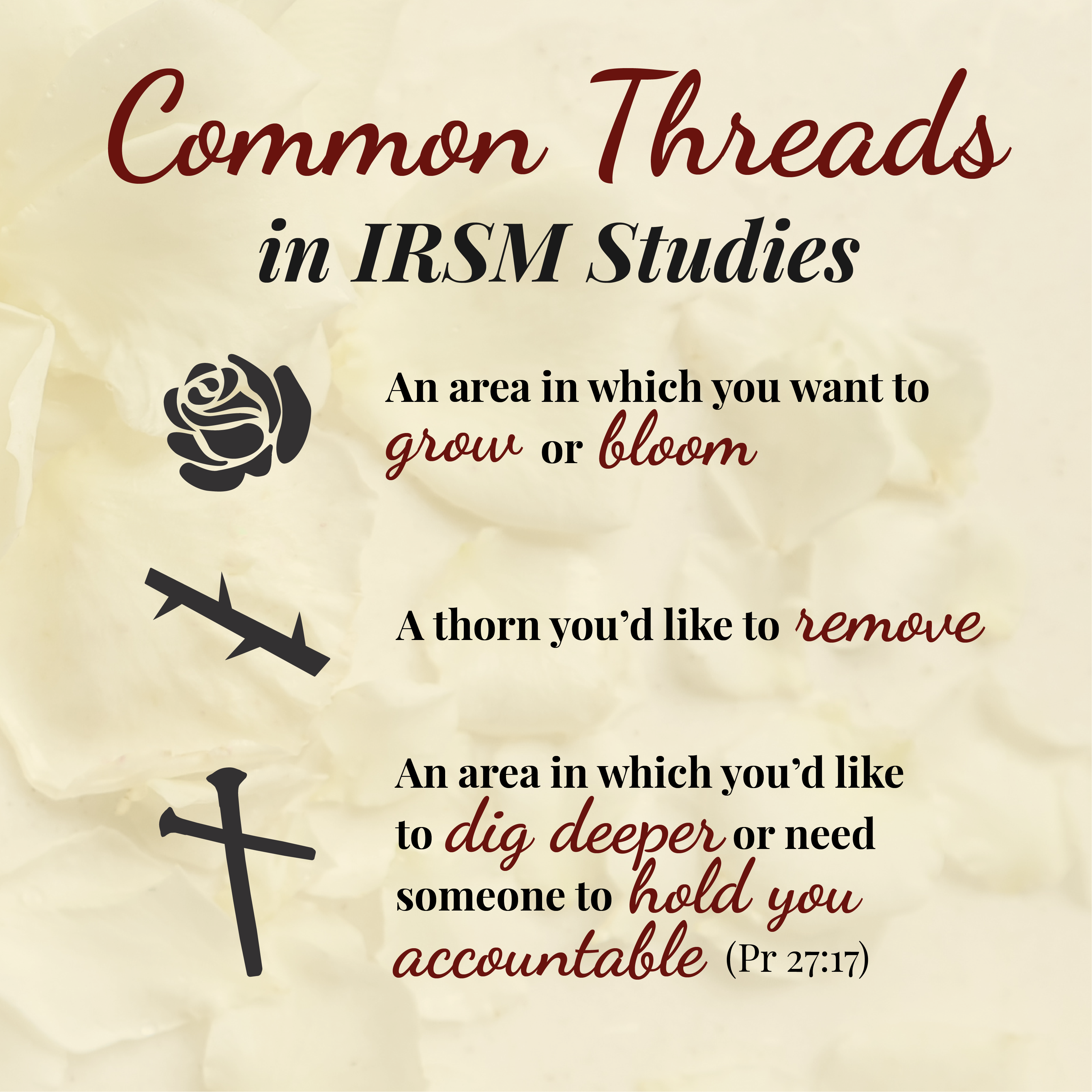-
Celebrating the Christ Who Became Flesh
 Written by Jelin Robles, volunteer with Iron Rose Sister Ministries in Foz do Iguaçu, Brazil
Written by Jelin Robles, volunteer with Iron Rose Sister Ministries in Foz do Iguaçu, BrazilIn the beginning was the Word, and the Word was with God, and the Word was God. He was with God in the beginning. Through him all things were made; without him nothing was made that has been made. In him was life, and that life was the light of all mankind. (Jn 1:1-4 NIV)
Reading the book of John transformed my way of thinking and seeing things, and when I discovered that it was intended for the church, I was even more enchanted. I love the book of John.
He was in the world, and though the world was made through him, the world did not recognize him. (Jn 1:10)
The words and actions described in the first 14 verses of John are very powerful. For me, there are no other verses as realistic and clear as these. Furthermore, the first four verses reveal to us the presence of Jesus at the creation of the world, contradicting the many erroneous statements and beliefs that seek to deny the sovereignty of the Son. We understand that we were created through Him and by Him. The love of Jesus Christ for us surpasses our understanding, for He came as a man, leaving His glory.
He came to that which was his own, but his own did not receive him. Yet to all who did receive him, to those who believed in his name, he gave the right to become children of God— children born not of natural descent, nor of human decision or a husband’s will, but born of God. (Jn 1:11-13)
Out of His love for us, in order that we would all turn back to Him, John was chosen to testify of Christ’s arrival. However, not everyone accepted Jesus as He was. Some rejected Him, but there was another group that accepted Him and He called them His children. What a beautiful and rewarding thought for my heart, knowing that He did this for me and everyone around me—throughout history and those who will live in the future until Jesus returns. My heart overflows with joy because I understand that once I was one of those who rejected Him and did not accept Him, but His eternal love caused me to know Him better until I accepted His invitation to the table and became His daughter.
The Word became flesh and made his dwelling among us. We have seen his glory, the glory of the one and only Son, who came from the Father, full of grace and truth. (Jn 1:14)
His sacrifice motivates me every day to fulfill His will, and that is what I always want to do. May all Iron Rose Sisters be grateful for what Jesus and our Father did for us and may we all strive to please Him.
-
Choosing to Give Thanks
 Written byIsabela Lima, volunteer with Iron Rose Sister Ministries in Boa Vista - Roraima, Brazil
Written byIsabela Lima, volunteer with Iron Rose Sister Ministries in Boa Vista - Roraima, BrazilIn 2017, I had to experience grief in a heavy way—heavier than I thought I could handle. We had participated in a spiritual retreat in February where the theme was “Be Strong and Courageous.” And I needed to be.
In May of that year, we received the devastating news that my brother-in-law had passed away suddenly and unfairly. That news tore at the heart of my husband and his family.
I saw him suffering. Everything around us was tears and pain.
Someone he loved dearly had passed away.
It was then that I began to see the great love God had, and still has, for us—His care despite everything. The church cared for us and held us like children who needed to cry in someone's arms.
The pain was immense. The whole city was moved by this horrible thing that had happened.
And seeing my loved ones in that situation, I prayed to God to transfer to me at least a little of what I saw them feeling.
What I didn't know was that a few months later, I would suffer exactly the same thing.
Now it was my brother who had passed away. And I felt completely immersed in a cloud of grief. Once again, the Lord's Church embraced us, and we were cared for with great love. The church cared for us, and we cared for our family.
Grief is dark and incredibly painful. Church services became a place where we simply cried.
But, behind all the pain, a strange (for that moment) feeling of gratitude filled me—not because of what had happened, but because I could feel the powerful hand of someone caring for me in the midst of my affliction. Furthermore, I felt the inheritance of an earthly family, better known as the Church of the Lord, which was completely at my side.
My awakening to serve God more happened after this experience. Through it, I realized that I was a Christian, but I hadn’t been dedicating to the Lord everything I could or should have. So, instead of clinging to the pain, I clung to the idea that I could serve God better, surrender my life to Him, and prepare myself so that, when I saw others going through the same thing, I could help them in some way.
This process was also a form of healing from grief. Serving God, growing closer to Him, and becoming more involved in the work of the church strengthened me. If it weren't for that, I wouldn't be in Boa Vista, serving others today. I understand that everything is subject to the Lord's permission and that there is a purpose in all things. What we need to do is decide from which angle we're going to look: whether it's just the problem itself or how God works through it. After all, in John 16:33, Jesus said that in this world we will have trouble, but to take heart!
I think about this often. It was a trial that made me more mature in clinging to God and trusting my Father, who always knows what's best for me. At no point did I want to take it out on the Lord or question why I was going through this. On the contrary, I wanted to go to His feet, cry when necessary, help those who needed me, and learn to be more present in the church, to work better, and to serve more.
Give thanks in all circumstances; for this is God's will for you in Christ Jesus. (1Th 5:18 NIV)
“Give thanks.”: Grief changed me, but it didn’t mold me into its dark pattern of pain. It was through it that I grew even closer to my Heavenly Father.
“In all circumstances”: Even if I lose my family, God is with me, and His promise that one day I will be with Him, living in heaven, is what drives me to long for Him in this life.
After all, who will separate me from the love of God revealed in Christ our Lord?
-
Clothed in Christ Today
 Written by Johanna Zabala, volunteer for Iron Rose Sister Ministries in Venezuela
Written by Johanna Zabala, volunteer for Iron Rose Sister Ministries in VenezuelaAnd all who have been united with Christ in baptism have put on Christ, like putting on new clothes. (Gal 3:27 NLT)
Today, through the new birth of water and the Spirit, I have at my disposal the purest and most beautiful garment that I have ever had or known, and even more, that unites me in Spirit with Christ Jesus.
Such a precious spiritual garment of Christ now in me, received by grace twenty-three years ago and to the glory of God, is what binds me every second of life to being constantly like Him, this being my most sublime first commitment of love.
To call myself a Christian today is to be able to exist more and more like Christ in every area of earthly life. Living in unity with Christ is also the most complete and integral blessing. Today, I live in an increasingly upside-down world, but having been clothed in Christ makes me feel safe, protected, and much loved.
Using the analogy of my new life with Christ, being already clothed with Him, I can confirm that everything I have lived and am still living in God's will with my husband was not and is not just to be happy, but more importantly to ask Him to accompany and support us. No longer being two, but one means we can attain in common the character of Christ, and thus be representatives of His name and image in the grandest garment—His Holy Spirit.
Some time ago, I read something that I have experienced myself: that marriage is where the mind of Christ can be most deeply acquired. I believe that having Him as part of the marriage relationship requires love and sacrifice, and, in a great way, to stop living only for oneself and to be one with the husband and vice versa.
Reading and personalizing Galatians 2:20, we are told, “My old self has been crucified with Christ. It is no longer I who live, but Christ lives in me. So I live in this earthly body by trusting in the Son of God, who loved me and gave himself for me.” He unites me not only in putting on His unique divine garment but in His spiritual nature to follow in His footsteps toward the progressive path that leads to the goal of eternal life.
At this moment, as I am married and walking through the course of my spiritual years, I have indeed learned the importance of being like Christ. It is when I am controlled by human emotions, thoughts, and actions that I most need God and His wisdom, which only comes from the Father through His Son and in His Holy Spirit, who guides the way to the truth and life of Christ.
Like every one of the important aspects of this life, I remember that in my first years as a wife, after all the feelings of butterflies in my stomach, I began to experience a diverse rainbow of emotions, beliefs, and realities that led me to various struggles, increasingly complex, and that required, without a doubt, the Divine Presence.
I remember so many differences arising between the two of us. I remember those moments of uncertainty when every decision, every dream, and every goal was no longer just mine, but now it was my husband's decisions, dreams, and goals as well. Coming to an agreement was increasingly difficult. For example, it was quite a challenge when he liked grey and I liked fuchsia, when he liked details and I liked simplicity, when we found that we were more and more different. But by keeping in the mind of the Lord and His love, we have grown to complement each other more and more every day as one in Christ, clothed with Him.
This unity fills us daily with a love that can do everything, with incomparable joy, a peace that surpasses all understanding, firm self-control, wise meekness, great portions of patience, a flow of goodness, and true faith; characteristics that perfect everything we face to always be like Christ in each of the moments or places where we are. What a blessing it is to be like Christ! Are you clothed in Christ today?
-
Clothed with Christ in Baptism
 Written by Brenda Davis, volunteer with Iron Rose Sister Ministries in Arkansas
Written by Brenda Davis, volunteer with Iron Rose Sister Ministries in Arkansas“Who are you wearing tonight?” Celebrities are asked this question by members of the press as they walk the red carpet at a movie premier or awards show, and it is usually answered with the name of a famous fashion designer.
The apostle Paul tells us about who we will be wearing after we are baptized. “For all of you who were baptized into Christ have clothed yourselves with Christ” (Gal 3:27 NIV). Reflecting on this metaphor, I can almost feel Jesus’ presence hugging me like a perfectly fitting garment.
Let’s look at what God’s Word says about baptism.
WHAT
In the Scriptures, we see that baptism is the immersion of a believer in water in the name of the Father, the Son, and the Holy Spirit. It is our response to hearing and accepting the message of the Gospel, symbolizing our death to sin, the burial of our old life, and our resurrection to a new life in Christ. Baptism is our declaration of faith and represents an unconditional promise to God to do His will.Baptism is a picture of death and of the grave. Coming up out of the water represents Christ’s resurrection (Ro 6:1-4). So, when you are baptized, you are saying, "I died with Jesus Christ, I was buried with Him, and now I am raised with Christ to a brand-new life— a changed me."
HOW
The Greek root word baptizein, from which we get the word baptize, means to plunge, immerse, sink, or wash. Another word more often used throughout the New Testament is baptizō which means to totally submerge, drown, immerse, or dunk into water.We find several instances of baptisms In the New Testament where evidence points to immersion. John the Baptist baptized in Aenon near Salim which is along the Jordan River “because there was plenty of water” (Jn 3:23). After Jesus’ baptism, He “came up out of the water” (Mk 1:10). And both Philip and the Eunuch “went down into the water and Philip baptized him” (Ac 8:38).
WHY
Baptism does not appear to me to be merely a suggestion, but rather something extraordinarily important as it connects to our salvation. Several passages bear this out: “Jesus answered, “Very truly I tell you, no one can enter the kingdom of God unless they are born of water and the Spirit” (Jn 3:5). “Whoever believes and is baptized will be saved, but whoever does not believe will be condemned” (Mk 16:16). “This water symbolizes baptism that now saves you” (1Pe 3:21a).Baptism is so important that Christ’s final instructions before He ascended to Heaven were, “Go and make disciples of all nations, baptizing them in the name of the Father and of the Son and of the Holy Spirit, and teaching them to obey everything I have commanded you” (Mt 28:19-20).
And when we are clothed with Christ, we receive rich blessings:
Forgiveness of sins and the indwelling of the Holy Spirit: “Peter replied, ‘Repent and be baptized, every one of you, in the name of Jesus Christ for the forgiveness of your sins. And you will receive the gift of the Holy Spirit’” (Ac 2:38).
Being joined with other believers in the church—the body of Christ: “For we were all baptized by one Spirit so as to form one body” (1 Co 12:13a). “Those who believed what Peter said were baptized and added to the church that day—about 3,000 in all” (Ac 2:41 NLT).
WHEN
Every person who has heard the gospel message and can make a conscious decision to believe in Christ is “eligible.” For some, baptism may follow a process of study, but lengthy Bible study is not a requirement. We find that New Testament believers were baptized in immediate response to hearing the Gospel message for the first time, such as in the story of Philip and the eunuch in Acts 8. Other instances are also recorded:“But when they believed Philip as he proclaimed the good news of the kingdom of God and the name of Jesus Christ, they were baptized, both men and women.” (Ac 8:12 NIV)
“And now what are you waiting for? Get up, be baptized and wash your sins away, calling on his name.” (Ac 22:16)
“At that hour of the night the jailer took them and washed their wounds; then immediately he and all his household were baptized.” (Ac 16:33b)
WHY NOT?
Sisters, Jesus said, “If you love me, keep my commands” (Jn 14:15). If you have not put on Christ in baptism, what might be keeping you from submission and obedience to your Savior? I urge you to examine your heart and consider changing your clothes. -
Come, Follow Me
 Written byAmanda Santos, volunteer with Iron Rose Sister Ministries in João Pessoa, Brazil
Written byAmanda Santos, volunteer with Iron Rose Sister Ministries in João Pessoa, Brazil“Leave everything you have and follow me” is a simple order to understand, but when we read Mark 10:21-22 we see how sad that young man was because he thought about what was included in his “everything” that he would have to leave behind.
Bringing this example to our lives, what is our “everything”? What do we have that is so valuable that sometimes keeps us from leaving it and following Christ? Well, maybe your “everything” is the concern with household chores, or perhaps the desire to acquire a material possession, or you need to handle just one more little thing before leaving everything in God’s hands. That young man really wanted to follow Christ, but his material possessions took up so much space in his heart that he was unable to leave everything and trust in Jesus.
In Luke 9:23 we read the following: “Then he said to them all: “Whoever wants to be my disciple must deny themselves and take up their cross daily and follow me’”(NIV).
When Jesus says, “deny yourself,” He is calling us to set aside our selfish desires and put God’s will first. Denying ourselves is an expression of humility and submission. It is recognizing that our own plans and desires are secondary to God’s plans. This call to self-denial is an invitation to live a life of sacrifice and obedience, where God’s will prevails over our personal inclinations.
The second part of the verse calls us to take up our cross daily. The cross, in Jesus’ day, was a symbol of death and suffering, but it has become a powerful symbol of redemption and sacrificial love. Taking up our cross means being willing to suffer and face hardships for the sake of Christ. Taking up our cross daily involves living a life of spiritual discipline, rejecting sin and pursuing holiness. It means accepting the challenges and adversities that arise in our Christian walk with the same willingness and courage that Jesus had in carrying His cross. It is a call to a life of dedication and unwavering commitment to Christ.
And finally, “follow Jesus” means imitating His example, living according to His teachings, and walking in the path He shows us. Following Jesus is a call to live in obedience and faithfulness. It is allowing Him to guide our lives and transform our hearts.
Imitating Jesus involves deeply knowing His teachings and applying these principles in our daily lives. This requires an ongoing commitment to studying the Bible, praying, and seeking fellowship with other believers. It is through this dedication that we can better understand God’s will and align our lives with His purposes.
In Matthew 4:19, Jesus says, “Follow me, and I will make you fishers of men” (KJV). This phrase from Jesus is calling men to be His disciples, and as disciples of Jesus, to spread His word. It is a call to evangelize and spread the good news of salvation throughout the world. And something I think is wonderful is that we can do this without even having to leave home. When you talk about Jesus to your family, you are evangelizing. And don’t worry — Jesus said, “I will make you.” The knowledge comes from Him, the words come from Him. We just need to be surrendered to His will and ready to do what we can.
Therefore, sisters, may we be willing to give up all control and our own desires to let Christ guide us on the best path. And may our lives be an example of faith, that through our relinquishment and surrender, Christ may be exalted.
-
Committed to Christ in Good and Bad Times
 Written by Lisanka Martínez, volunteer with Iron Rose Sister Ministries in Venezuela
Written by Lisanka Martínez, volunteer with Iron Rose Sister Ministries in VenezuelaThere is a time for everything, and a season for every activity under the heavens. (Ec 3:1 NIV)
Knowing how to wait on God, trusting He will always give us what He knows we need in His time, and He tells us what we should or should not do, requires practice and our firm commitment.
In my early Christian life, I had only a faint idea of how to tell others about Jesus. I also had a hard time volunteering to pray publicly for fear of making a mistake and giving a bad testimony (more than just stage fright). Even though I was always willing to serve and help in whatever was asked of me and wherever it was needed, I knew that I was not giving all of me. n my home I spent very little time in prayer or study of the Word. Nevertheless, I continued to read the Bible occasionally, attend classes, women’s gatherings, Sunday service, and teach children’s classes.
As we all know, God shapes us step by step through good and bad times as we accumulate experience. In my case, I am ashamed to confess there were moments when I failed and doubted my faith, the affection and interest of my brothers and sisters, and even the meaning of life. However, I kept attending, I kept serving, I kept trying to understand, and I kept taking my family to church activities until I understood what a commitment to Christ is.
In the past if someone asked for prayer, I thought, "Let's pray now." When someone needed comfort, I was there even though I only repeated the usual phrases and struggled to express myself. But now that I am more fully committed, I also pray even when they don't ask for it, and I continue to do so until I see an answer to that request. If I see that someone needs comfort through a hug or a kind word, I will give it to them, and if I am far away, I communicate with heartfelt phrases of empathy and love. In the past when physical effort was needed to do something, I did it, but only mechanically. Now due to my current health condition, if I want to support an activity that requires physical effort beyond my capacity, I know I can ask for help from others, and I collaborate in everything I can. I am now encouraged when I have the opportunity to knock on doors and invite others to a church campaign or activity. I go with enthusiasm and I love to look for the lost. My commitment has become stronger.
Knowing exactly when my commitment to Christ increased is a difficult thing—it may have been when I was disabled and had to leave my job as a preschool teacher. However, at that time I increased my involvement in Sunday school work. It could also have been when my girls left the nest, sadly, because I could have been a better example for them. But during that time, my health kept me very busy and mostly focused on prayer. Then came the time of the pandemic where, thanks be to God, my husband and I were able to dedicate ourselves to reading and studying the Word daily, contacting brothers and sisters from other places. Thanks to the technological resources inspired by God, we were learning, having the desire to study more every day, practicing what we had learned, and sharing it with others.
I now understand that committing to Christ is a pleasure, that we must feel love, accept responsibility, have enthusiasm, dedication, and desire to learn and feel very good with each step we take in that direction. I also know this commitment will sometimes tempt us to try to overcome obstacles on our own and fatigue or discouragement may result. It is a task that tests us many times and does not always give the expected results.
If we dedicate our time to working for the Lord, He will bless it. I know I should not give up when adverse situations arise. My health is going through hard times; I pray while I cry because of the pain, but I also praise very strongly. When I want to attend an activity but my economic situation prevents me from doing so, I ask those who attend to send me photos, audio, or videos of the activity, and I share them, feeling grateful for the technology. Every day, I share with someone about God and the Gospel of salvation.
Do you think we should commit only when physically and emotionally well? Does your financial situation influence your work for the Lord? Let us remain committed even when we are faced with challenging times.
-
Committed to Each Other
 Written byRayne Paz, volunteer with Iron Rose Sister Ministries in Salvador, Brazil
Written byRayne Paz, volunteer with Iron Rose Sister Ministries in Salvador, BrazilSimon Peter answered him, “Lord, to whom shall we go? You have the words of eternal life. We have come to believe and to know that you are the Holy One of God.” (Jn 6:68-69 NIV)
Do you remember what or who led you to Christ? There are many paths that lead someone to know Jesus. Some people knew Him from a young age through their parents or guardians, while others come to know Him as teenagers or adults.
In the verses we will work through today, we will see that some people had the privilege of meeting Christ personally, but there was one common detail: the message was not enough for them to remain with Him. In fact, the message seemed somewhat irrelevant by worldly standards. In John chapter 6 (read the entire chapter), Jesus was becoming known; it was no longer necessary for Him to be introduced to the people who came to Him. He seemed like a good teacher, with good things to offer His followers, especially in the most recent get-together where there was even a free meal. But this time, merely thinking He was a good teacher that shared good physical food was not sufficient to continue following Him. Jesus leaves the carnal sphere and presents to those people the true benefit of following Him. However, it was not exactly what the crowd expected to hear.
Just like those people, we once came to know Christ, perhaps initially through some of His material blessings, but there comes a time when we are confronted with truths that are hard to accept. We are put to the test as to whether we are remaining in Him for the right reasons. There comes a time when we must decide to stay. Jesus’ words confront our deepest convictions, and suddenly we find ourselves giving up what we previously thought in order to believe exclusively in Him.
The word used by one of His followers in verse 60 translated as “hard” comes from the Greek word sklhro/ß (sklēros). It does not mean “hard to understand” but rather “harsh,” “severe,” or “unpleasant.” Therefore, it is not that Christ’s message is incomprehensible to us, but rather that it is uncomfortable to our will; it is disagreeable to “self,” and at times it frustrates our expectations.
Jesus’ words were offensive, not incomprehensible. However, sometimes being offended is necessary to make a decision. Jesus already knows our answer, whether we will follow Him or not, just as He also knew the disciples’ answer. But He wants to hear us say it to others and to ourselves, just as Peter recognized, accepted, and proclaimed that there is no other way (verse 68). Deciding to stay means understanding who Jesus is, His redemptive work, and the plan of salvation. It is looking with spiritual eyes of satiety and contentment at the living and eternal food, not waiting for what we may enjoy in this life that is temporary and useless. Jesus is the food that gives eternal life, satisfying us forever.
There is a Portuguese song that sums this up very well: “Christ offers what He is.” Jesus offered the bread of life because He is life itself. Unfortunately, the people in John 6 were not prepared for this. Life here on earth mattered more to them.
Some will not bear this truth or will not be willing to give up their convictions in the name of Christ. Like Peter, we must recognize that there is no one else with whom we can completely trust our lives, not because of what He offers, but because of who He is. That moment was an important step for the twelve: becoming a disciple consists of giving up this life and recognizing that outside of Christ there is nowhere to go.
What about us? Will we decide to stay?
-
Committed to Helping, Loving, and Rescuing Us
 Written by Ayane Nayara, volunteer with Iron Rose Sister Ministries in João Pessoa, Brazil
Written by Ayane Nayara, volunteer with Iron Rose Sister Ministries in João Pessoa, BrazilBut you, God, see the trouble of the afflicted; you consider their grief and take it in hand. The victims commit themselves to you; you are the helper of the fatherless. (Ps 10:14 NIV)
When we have a relationship with God, we can enjoy many of His characteristics; we get a taste of what He is. We taste His love, His faithfulness, His kindness, His mercy, His grace, His generosity, among other attributes of our God, including His commitment.
To better understand this attribute, let’s think about its meaning. Commitment is an obligation assumed by one or more parties. It is an agreement or pact made by someone with another being or with themselves.
God as our Creator and Father is committed to us. Since the creation of man, He has made promises and covenants with humanity and His people. He planned every part of our journey and He committed to fulfilling it. Unfortunately, these covenants were broken, not by God, but by man. When a covenant is broken, both parties no longer have the obligation or commitment to fulfill what was agreed. However, what we do does not change who God is.
God takes on a responsibility with us. Like a true father, He knows our needs and despite our faults, He is committed to keeping His covenant. At all times, He seeks to teach us, make us grow, and bring us back to His path.
In Jeremiah 29, part of His people was exiled in Babylon. It was a difficult time for them. Israel had failed God; they once again broke the covenant with the Father and were suffering the consequences. However, the Lord remembered them and made this clear when He sent them a letter through the prophet Jeremiah, asking them to remain firm, not to listen to false prophets, to multiply, and stay alive.
In verse 11 He says, “For I know the plans I have for you,’ declares the Lord, ‘plans to prosper you and not to harm you, plans to give you hope and a future.” All along, the Lord has been committed to helping, loving, and rescuing His people.
In the Old Testament, He made a covenant with one people, while still blessing others. From humanity: broken alliances, broken promises, betrayal in worship, among other failures; from God: fidelity and commitment.
In the New Testament, He makes a covenant not only with one people but with all those who are open to His will. He gave us His Son so that through Him we could draw closer, and He left us His Spirit as proof of the commitment He has made to take us to our heavenly home. From humanity: the same situation as in the Old Testament; from God: He remains committed. Unlike before, we now have His grace that allows us to get closer to our Father. Even so, in response to His unconditional commitment, He asks us to commit. We need to seek and strive to bring who we are to who the Father is. He does not force us to enjoy who He is, but He is available when we seek Him.
We must always remember that no matter what we do, God remains committed to us as long as we repent and return to Him.
Remember: God is a Father committed to helping, loving, and rescuing us.
He loves us, allowing us to learn from the consequences of our mistakes. He helps us, revealing our sin, guiding us where to walk and what our attitude should be to grow. And He rescues us, reminding us of our covenant with Him and fulfilling His promises.
“Then you will call on me and come and pray to me, and I will listen to you. You will seek me and find me when you seek me with all your heart. I will be found by you,” declares the LORD, “and will bring you back from captivity.” (Jer 29:12-14a)
-
Committed to My Iron Rose Sisters
 Written by Katie Forbess, volunteer and Board President with Iron Rose Sister Ministries in Missouri
Written by Katie Forbess, volunteer and Board President with Iron Rose Sister Ministries in MissouriAs iron sharpens iron,
so one person sharpens another.
Proverbs 27:17Looking at past blogs on the IRSM website which I have written or been a part of, I see the foundation of the notes that I have been writing for this blog. It is a comforting reminder that God has been working consistently in the same ways through my commitment to Iron Rose Sister Ministries through relationships, prayer, and reliance on Him.
If you ask me how I am most committed to my Iron Rose Sisters, I will tell you it is in prayer. Why? Because all other things I do have the possibility of failure. Someone won’t like the words or scripture I share or the gift I have chosen. I will let them down with my overwhelming humanness. But through prayer, God uses my holiness to bless them. The Spirit intercedes for them as He does for me. With all the groans and lack of words, He communicates the soul's cry to the Father.
Actions are a must. Listening and following through on the Spirit’s promptings to act are essential (Called to Listen and Committed to Listen books). And the way that I know I can best help someone is to bring them to the Father in prayer.
Prayer is an awesome testimony of love. Recently, a prayer line that I am on spent the whole time praying for a fellow sister who was a caregiver. One of the most amazing things to listen to was other sisters who I know are also caregivers holding up this sister in prayer. For an hour. Prayer after prayer. Some in the form of songs, others through readings of the scripture. A few laughs and a whole lot of tears.
This also happens during the weekly team meetings of Iron Rose Sister Ministries. The meeting begins with a devotional, and prayer is always included; not a general prayer, but a prayer that inserts our lives into the lives of others and presents our hearts before the Lord, always asking in confidence, trusting He not only hears us, but He is in control.
These kinds of relationships are the foundation of IRSM and the goal to grow closer to God and one another. Through moments like these, the team is prepared to make important decisions like the very difficult one made recently to cancel a trip. The trip was planned and prayed over, the events set up, and invitations sent out. Michelle and Julia were prepped and ready. The Spirit was willing but literally, the flesh could not make it. The unity of the team and the trust on all sides that the decision was being made for God’s glory was not easy. But it worked out and the team was amazing in their response to all the things that had to be done, from the refunding of tickets to the communication with the congregations. After countless prayers and some tears, it was evident. God blessed the process.
This is only one example, and I will say with confidence that as the team and ministry grow, the stories grow, as does our faith through our time in prayer.
So, if you want to know how to be committed to your Iron Rose Sisters, my answer is prayer. If you want better relationships, pray. If you want to truly help the sister who just lost her husband, pray. Please do not hear me say that prayer is a magic incantation and that no other action is involved. At the very least God will change your heart, but it’s more likely that He will change your perspective about what action needs to be taken.
Praying always.
-
Committed To One Another
 Written by Rianna Elmshaeuser, volunteer with Iron Rose Sister Ministries in Colorado
Written by Rianna Elmshaeuser, volunteer with Iron Rose Sister Ministries in ColoradoLet us hold unswervingly to the hope we profess, for he who promised is faithful. And let us consider how we may spur one another on toward love and good deeds, not giving up meeting together, as some are in the habit of doing, but encouraging one another—and all the more as you see the Day approaching. (Heb 10:23-25 NIV)
The New Testament has five verses that mention “good deeds,” and four of those are in 1 Timothy. Paul instructs women to be more concerned about adorning themselves with good deeds than the latest fashions (2:9-10), the rich to be rich in good deeds rather than trusting in their material wealth (6:18), and that good deeds, like sins, will be found out eventually, both the obvious and not (5:25). First Timothy 5:10 provides some examples of good deeds: bringing up children, showing hospitality, washing the feet of the Lord’s people, helping those in trouble, and being devoted to all kinds of good deeds.
Verses 24-25 in Hebrews 10 grammatically suggest that the opposite of spurring one another on toward love and good deeds is giving up on meeting together. Anyone who has gone to the same church for more than a few years knows that where there are people, there are problems. None of us is perfect, so we sometimes hurt each other accidentally or out of selfishness, or because we ourselves have been hurt. Hebrews is a call to not give up on each other, but to continue in good deeds and to love one another as Christ loved us.
Some of the most bonding experiences with my fellow saints have been when we were out in the world doing good deeds and working for the Lord. We did not have time to squabble about someone getting in someone else’s lane or how so-and-so should have done things this way instead. There was simply such an overwhelming amount of work to be done and people to serve that no one got in each other’s way.
Perhaps the author of Hebrews is instructing the church not to lose the mission of seeking and saving the lost. In America, it is easy to become consumers within our congregations instead of serving others. The list in 1 Timothy covers serving the Lord’s people and those in trouble. Who is in more trouble than the lost? We also tend to hide our own troubles, hurts, and problems from each other. If we only knew the pain and suffering going on within our congregations, suddenly the arrangement of classroom chairs wouldn’t seem as big of a deal. I have a friend who runs a shoe-shining business. Her business has been successful for many years, and she says it’s because she trains her employees to listen to the customers while they are shining their shoes. Her customers are CEOs and high-powered people who frequently find themselves in tears because someone has taken the time to listen to them and care about their day.
The list of deeds does not include handing someone money. When we are doing good deeds for the Lord’s people and the lost—washing their feet, helping to bring up their children, and showing hospitality—these things take time. Even when you get hurt, rather than quitting and finding another church, it is so important to keep doing good deeds and loving each other. We need to keep spending that time, taking time to listen to each other’s needs, and working out our problems.
The message of the world when someone hurts you or offends you is to say, “I deserve to be treated better,” and to leave that relationship, job, or whatever. We, as aliens and strangers in this world, are called to a different response. Do not leave, do not give up meeting together. Instead, awkward as it may be, keep meeting together, keep encouraging each other, and keep doing good deeds together or for each other. It is when we give up that the enemy wins. What is sweeter than the restoration of a friendship when you thought you had lost a friend forever because you messed up? So often Christians focus on commitment in a marital context, but commitments to friendships, to family, and to the brothers and sisters in Christ’s church are just as necessary if the work of God’s Kingdom is to continue. It is not an easy path. Commitment rarely is. But Jesus called us to be set apart for Him— to be different than the world. Continuing to encourage each other and love each other makes us radically different than the world. I pray that we will all make this commitment.
-
Committed to One Another: Getting to Know the Common Threads
 In the context of small groups or trios of women, we have an opportunity to participate in authentic, genuine relationships that can deepen our relationships with God and one another. Iron Rose Sister Ministries prays that we can equip you in those relationships, especially in your local churches and small groups. And one of the ways we do that is represented by the Common Threads— the three elements of the ministry logo. They are a way of making any Bible lesson very personal and practical: the sermon on Sunday mornings, your personal Bible reading, or your favorite chapter in an Iron Rose Sister Ministries Bible study book.
In the context of small groups or trios of women, we have an opportunity to participate in authentic, genuine relationships that can deepen our relationships with God and one another. Iron Rose Sister Ministries prays that we can equip you in those relationships, especially in your local churches and small groups. And one of the ways we do that is represented by the Common Threads— the three elements of the ministry logo. They are a way of making any Bible lesson very personal and practical: the sermon on Sunday mornings, your personal Bible reading, or your favorite chapter in an Iron Rose Sister Ministries Bible study book.The Rose in The Common Threads
The bloom of the rose reminds us that we are all beautiful and unique roses in God’s Garden. It represents the areas in our spiritual lives in which we long to bloom or flourish.“…making it bud and flourish… so is my word that goes out from my mouth…” (Isa 55:10-11).
The Thorn in the Common Threads
The stem represents the thorns we identify and want to remove. They may be thorns like Paul’s (2Co 12:7-10) that torment us, or they may be sin struggles that hinder our growth.“…a thorn in my flesh to torment me… throw off the sin that so easily entangles…” (2Co 12:7-10; Heb 12:1)
The Iron in the Common Threads
Iron Rose Sisters, as shown in the form of the cross, lovingly serve as iron sharpening iron, as God transforms us into the image of Christ, and as we deepen our relationships with God and one another.“As iron sharpens iron, so one person sharpens another.” (Pr 27:17)
-
Committed to Prayer
 Written by Adriana Rocha, volunteer with Iron Rose Sister Ministries in Brazil
Written by Adriana Rocha, volunteer with Iron Rose Sister Ministries in BrazilDo not be anxious about anything, but in every situation, by prayer and petition, with thanksgiving, present your requests to God. (Php. 4:6 NIV)
When I converted to Christ, I discovered that I possessed a weapon to use against my problems: prayer! In my process of learning to pray, I also realized how many things within me I needed to work on and improve. But, oftentimes with the wrong motives, I used prayer as a blindfold that kept me from seeing what was really happening and what I needed to do.
Over the past few years, during a very difficult period of my life, I have had my most intense experience with prayer. Although I did not intend for prayer to be a last resort, it was all that was left when all the other options were no longer available. But I was in a battle that I did not fight alone—I always had my relationship with God. In the moments that discomfort kept me from sharing with my brothers and sisters about the situation, I sought comfort in God.
This situation taught me that I need to pray, asking for help from God to see things as they truly are, discernment to know how I should proceed, and understanding of how and what to pray for. “In the same way, the Spirit helps us in our weakness. We do not know what we ought to pray for, but the Spirit himself intercedes for us through wordless groans” (Ro. 8:26). Once we understand what to do, we need to ask God for the strength to act.
One of the things that was very positive for me during this process was having a friend persevering in prayer with me. This dear, trusted sister spent hours on the phone with me. Our time together sharing what was happening and praying was very important to me. When I didn’t want to be patient and wanted to simply act without waiting for what God had prepared for me, this sister helped me to see the importance of God’s process of preparation. It is so precious to have someone praying with us: “For where two or three gather in my name, there am I with them” (Mt. 18:20).
Oftentimes during the break in church service, we would go into a room so that I could share how I was feeling, and we would pray together because I didn’t want anyone else to hear about the bad things that were happening. “Therefore confess your sins to each other and pray for each other so that you may be healed. The prayer of a righteous person is powerful and effective” (Jas. 5:16). Her encouragement for us to pray together made all the difference for me. She was also going through some difficult struggles and our friendship allowed us to pray for her problems as well.
But this time with her in communion and prayer did not replace my alone time with God. I continued praying “alone” too! I learned that even though God knows all things, rather than throw around random situations, my prayers should be specific. I prayed even in the moments that I didn’t know what to say to God, trying to hand over the situation to Him instead of spending my energy on something that I couldn’t do anything about.
I prayed even on the days that I had just enough strength to slide out of bed and get down on my knees and, not knowing what to say, just cry. “Then you will call on me and come and pray to me, and I will listen to you. You will seek me and find me when you seek me with all your heart” (Jer. 29:12-13). I feel that God has given me the strength and heart to keep me on my feet while facing this problem, sustaining me so that the new demands won’t shake me.
During the entire situation, one verse remained on my mind: “Have I not commanded you? Be strong and courageous. Do not be afraid; do not be discouraged, for the Lord your God will be with you wherever you go” (Jos. 1:9). If going through all of that was as difficult as it was, imagine going through it without God’s sustenance.
To conclude, I want to remind you that prayer frees us and brings us relief. It is a blessing to give up our worries to God. Even when we are unable to express them with words, God knows what we mean. “Devote yourselves to prayer, being watchful and thankful” (Col. 4:2). We cannot do what is not up to us. We need to hand our worries over to God. People often say: “All I can do is pray,” as if that were something small. But praying is the most important action of all. Instead, we should say, “I’m going to do the best thing I can do: pray!” Stop going around in circles on your own, come to the Creator, and follow His guidance.
What about you? Are you willing to be prepared by God to act after your prayer?
-
Compassion Implies Action
 Written by Kara Benson, volunteer with Iron Rose Sister Ministries in Alabama
Written by Kara Benson, volunteer with Iron Rose Sister Ministries in AlabamaPraise be to the God and Father of our Lord Jesus Christ, the Father of compassion and the God of all comfort, who comforts us in all our troubles, so that we can comfort those in any trouble with the comfort we ourselves have received from God. (2Co 1:3-4 NIV)
The Creator of the entire universe is described as the “Father of Compassion”; how beautiful and comforting! However, what exactly is compassion? In Hebrews 1:3a, we read that “the Son is the radiance of God’s glory and the exact representation of his being.” Therefore, we can examine the life of Jesus to understand the nature of compassion.
In the gospel of Matthew, Jesus travels through towns and villages, “teaching in their synagogues, preaching the good news of the kingdom, and healing every disease and sickness” (Mt 9:35). Jesus had compassion on the people He saw. He healed a leprous man (Mt 8:3), two blind men (Mt 20:29-33), sick members of a large crowd (Mt 14:14), and provided food for 4,000 hungry people (Mt 15:32). In the account of Jesus healing the two blind men, some versions say that Jesus was moved with compassion. When Jesus felt sympathy for others, He did something about it. From Jesus, we learn that compassion implies action.
As disciples of Christ, we are called to follow in His footsteps (Mk 8:34-35). We are to willingly lay aside our sin and self-absorption in the pursuit of Christ, following His example of being moved with compassion. Jesus declares, “Whoever serves me must follow me; and where I am, my servant also will be. My Father will honor the one who serves me” (Jn 12:26). According to the picture painted in scripture, compassion is clearly a central part of our commitment to serving Christ; it is even the basis for the separation of the sheep and goats on judgment day. Carefully consider this critical scene:
When the Son of Man comes in his glory, and all the angels with him, he will sit on his glorious throne. All the nations will be gathered before him, and he will separate the people one from another as a shepherd separates the sheep from the goats. He will put the sheep on his right and the goats on his left. Then the King will say to those on his right, “Come, you who are blessed by my Father; take your inheritance, the kingdom prepared for you since the creation of the world. For I was hungry and you gave me something to eat, I was thirsty and you gave me something to drink, I was a stranger and you invited me in, I needed clothes and you clothed me, I was sick and you looked after me, I was in prison and you came to visit me.” (Mt 25:31-36)
Subsequent verses explain that when we show compassion by fulfilling the needs of the least of Jesus’ followers, we are effectively serving Jesus himself. Let us contemplate the eternal value of exhibiting compassion.
The apostle Paul writes,Therefore, as God’s chosen people, holy and dearly loved, clothe yourselves with compassion, kindness, humility, gentleness, and patience. Bear with each other and forgive whatever grievances you may have against one another. Forgive as the Lord forgave you. And over all these virtues put on love, which binds them all together in perfect unity. (Col 3:12-14)
How can we show compassion by our actions?
- Volunteer at a pantry
- Drive someone to their doctor’s appointment
- Prepare food for someone who is sick, grieving, or a new mother
- Fervently pray for someone throughout the day
- Provide a listening ear for someone who needs comfort
- Help someone pack, unpack, or clean their house
- Humbly address unrepentant sin in a sister’s life that is endangering her soul
- Visit someone in the hospital, recovering at home, or lonely
- Forgive someone. Scripture frequently presents compassion and forgiveness together, indicating a connection between the two. As Ephesians 4:32 instructs, “Be kind and compassionate to one another, forgiving each other, just as in Christ God forgave you.”
A hard-working sister in our congregation is a good example of a compassionate Christian. She invited me to volunteer alongside her at a food pantry, woke up hours before sunrise to take me to an outpatient procedure, teaches children’s Bible classes, and regularly helps aging and disabled church members who need assistance. She can almost always be found doing something for someone. Her compassion reminds me of my favorite verse: “God is not unjust; he will not forget your work and the love you have shown him as you have helped his people and continue to help them” (Heb 6:10).
Compassion implies action. How can you show compassion today?
-
Confess to Rebuild
 Written by Vivian Arcila, volunteer with Iron Rose Sister Ministries in Canada
Written by Vivian Arcila, volunteer with Iron Rose Sister Ministries in CanadaListen to my prayer! Look down and see me praying night and day for your people Israel. I confess that we have sinned against you. Yes, even my own family and I have sinned! (Ne 1:6 NLT)
The book of Nehemiah not only sequentially details the biblical way to resolve conflicts and crises but also highlights the importance of confessing sin as an essential part of restoring our relationship with God.
It is interesting that when Nehemiah learns of the situation in Jerusalem and its captives, the first thing he mentions in his prayer is confession, not only of his personal sin but also of his family and his nation. He knew that the disobedience of the people of Israel had resulted in their destruction, and he felt responsible as well. Since ancient times, we have noticed that sin that is not corrected and is practiced deliberately can affect not only the person who commits it but also their family and even an entire nation.
Psalm 14:3 says, "But no, all have turned away; all have become corrupt. No one does good, not a single one!" As a God-fearing man, Nehemiah was aware that, although his works were pleasing to God, the human being is a sinner by nature. Nehemiah may have felt that he could have done more for his people before things got worse, but the truth is that confession is an essential part of our Christian lives.
Our walk in Christ begins with acknowledging that we have sinned before Him, repenting of our sins, and confessing Jesus as our Lord and Savior, which is confirmed with baptism and perseverance. Romans 10:9 says, "If you openly declare that Jesus is Lord and believe in your heart that God raised him from the dead, you will be saved." The doors of spiritual blessings begin to open with confession.
However, confession does not get stuck at the moment when we give our lives to Jesus. It should be a daily act to recognize Christ's lordship and discover our faults. In the face of every difficult situation, we must examine ourselves and confess our offenses to our Creator. In that moment of reflection, think about how much our personal sin has affected the family and, in some way, the community or society, and confess before God our participation in it, either directly or indirectly. It is not only sin to do evil to our fellow men, but also to fail to do good as James 4:17 says, "Remember, it is sin to know what you ought to do and then not do it."
Am I studying the Bible, praying, examining myself, and confessing my sins frequently? That helps me connect to God and cultivate a meek character that my family, church brothers and sisters, neighbors, drivers, people at the grocery store, and coworkers will notice. Not having good communion with God affects us personally because we lose peace, which is reflected in the treatment of our relatives and neighbors, causing a domino effect on the individual, family, church, society, and the whole world.
Let's try to make an effort daily in our relationship with God because it impacts, in one way or another, the life of our family and the lives of the people around us. Before we met Jesus, we were like a city with walls destroyed by sin. Now, we are being built on the rock that is Christ.
-
Discipleship Tools
 Written byKat Bittner,Iron Rose Sister Ministries Board Member in Colorado
Written byKat Bittner,Iron Rose Sister Ministries Board Member in ColoradoDiscipleship is the process of learning from and following a master or teacher. In the Christian context, it specifically refers to the lifelong commitment to follow Jesus Christ, learn from His teachings, and strive to live according to His example. This includes actively applying our faith in daily life and helping others to do the same.
For many believers, however, the word “discipleship” is unnerving. The mere thought of teaching others about Jesus and how to live a faithful life can be intimidating. Perhaps the thing most frightful for Christians is not the act of discipleship but knowing how to live out discipleship. Many of my generation, raised in the church, became accustomed to door-knocking or sharing a filmstrip series about disciples. Gospel meetings and church revivals were popular for reaching a large number of people in a short amount of time. While those means of sharing the Word of God with others were popular and could be fruitful, they were uncomfortable and ineffective ways for many Christians to make disciples.
Yet discipleship isn’t just one thing we should do as Christians; it is the very thing we should do.If we are truly living as followers of Christ, we must share Him with others. Jesus compels us to do that very one thing!
Go and make followers of all the nations, baptizing them in the name of the Father and of the Son and of the Holy Spirit. (Mt 28:19 NLT)
Paul tells Timothy in 2 Timothy 3:16-17 that all scripture is useful for training us to do what is right (among other things) and to equip us to do good works. Scripture also repeatedly tells us that we have been given varied and unique talents which can be used to serve others, to make disciples, and to glorify God (1Pe 4:10-11; Ex 35:10; Eph 2:10; Ro 12:4-8; 1Co 12:4-11).
It is with these gifts – or rather, these tools – that God has given to each of us that we should use to "disciple": to make disciples, modeling and teaching what it means to be faithful followers (Mt 28:20). I use my unique talents to share Jesus in a way that is comfortable for me yet fulfills my faithfulness in making disciples.
For example, I love Jesus, and I love food! And I believe God has given me a love of food, the gift of gab, and the skills to cook well so that I can share common ground with others where we might not have Jesus in common. Chef James Beard said that “food is our common ground, a universal experience.” When I provide a meal for a nonbeliever, serve food at a community kitchen for the homeless, or organize a meal for a community outreach or missions event, I can use food as common ground with those who might not otherwise share Jesus in common with me.
I meet people in their place of need and then communicate that Jesus is the reason why their need is being met. That communication might simply be saying “Jesus loves you” or “to God be the glory,” which sometimes sparks greater conversation. In this way, I am being a disciple and inviting others to be disciples through the talents God has gifted me with to do good things. The same can be said of Christians who serve on medical missions, those who minister to the sick or shut-in, or those who provide counsel and assistance to people in crisis. Christians actively doing good for others in ways they are uniquely gifted and in doing those good deeds share Jesus and their own testimony of faith are proactively seeking opportunities to be and make disciples.
My dear sisters, a Christian disciple is one who is changed by Jesus to follow and learn from Him daily. It is one who assists in the spreading of the Good News and is committed to the mission of Jesus (1Jn 2:6; Mk 1:17; Jn 13:35; Ac 1:8). Using our unique talents – those training tools – to share Jesus could look very different for everyone. God may have gifted you a sweet voice for singing Christmas carols in your neighborhood. God may have gifted you with the skills to paint an image of what Heaven might be like. Maybe you have been gifted with patience to visit the elderly or babysit a neighbor’s child when they suddenly get called to work.
German pastor and theologian Dietrich Bonhoeffer once remarked, “Christianity without discipleship is always Christianity without Christ.” Every Christian, young or old, newly baptized or tenured in faith, must be committed to discipleship. Jesus’ command to make disciples is fulfilled each time we acknowledge Him in our good works.And we can make disciples in ways that use our tools, those God-given gifts, to share Jesus without hesitation.
How will you be and make disciples using your uniquely gifted tools?
-
Does Practice Make Perfect?
 Written byMaria Luzia Casali, volunteer with Iron Rose Sister Ministries in Rio Grande do Sul, Brazil
Written byMaria Luzia Casali, volunteer with Iron Rose Sister Ministries in Rio Grande do Sul, BrazilIt is God who arms me with strength and keeps my way secure. He makes my feet like the feet of a deer; he causes me to stand on the heights.(Ps 18:32-33 NIV)
After more than 40 years of Christian life, I can say that the journey is not easy. However, our trust in the Rock must be strong.
For who is God besides the Lord? And who is the Rock except our God? (Ps 18:31)
This psalm shows that we are not strong on our own. Our foundation in the Father is what makes us strong.
How can we stand on this foundation?
First of all: FAITH. We need to have a very strong faith in God and His promises. We need the faith described in Hebrews 11:1 to endure trials.
Now faith is confidence in what we hope for and assurance about what we do not see.
Also, believing that God fulfills His promises. I get very encouraged when I read Romans 8:28 because I know that God is not human; He does not lie.
And we know that in all things God works for the good of those who love him, who have been called according to his purpose.
Our faith is tested at every moment. We need not look at the problem so as not to sink in the waters like Peter in Matthew 14:22-33. We must keep our eyes fixed on Jesus, the author and perfecter of our faith, so that we can walk with Him.
Something very valuable and extremely necessary during trials is to be in prayer, asking for patience and wisdom.
So far, I've talked about the theoretical part. But what about in life? What should I do? I will now share a few times that my faith has been tested.
1) When my parents died. Was there suffering? Yes. However, my mind wasn't on the grave. My eyes were on my Savior. He would give me the comfort I needed.
2) When all my friends were able to get pregnant and I wasn't. When I decided to adopt, and the process took over seven years on the adoption waiting list, where was my faith? In the Father's promises. "All things work together..." including not getting pregnant and the waiting time for adoption. It's not easy, but by praying and understanding the Father's will, it becomes less painful.
3) When my marriage ended. Where did I go? I went where I'd always gone: God's house, worshiping Him because I trusted in God's promises. And Matthew 6:33 was my anchor. It's a promise.
But seek first his kingdom and his righteousness, and all these things will be given to you as well.
And God fulfilled it in my life!!!!!
4) When I discovered my son is neurodivergent. I prayed to see a specialist who was appropriate for his case. God never failed. In addition to complying with the treatment, I always loved, disciplined, and taught God's Word to my son.
5) When my son left home to live with his father. What happened to my faith? This situation was the worst of all for me. I felt betrayed. I was very sad. But I always recalled God's promises, and today, I know it was better for both of us.
Returning to the title of the text: Does practice make perfect?
Perfection characterizes an ideal being who possesses all qualities and has no flaws; a circumstance that cannot be improved.
For me, within this meaning, practice will not lead to perfection because we can always improve our faith and our quality of time with the Father.
However, the more time we spend walking with God, the closer we will be to perfectionbecause it is He who clothes us with strength and sustains us. Our faith must be only in Him. Whatever trial may come, we will remain steadfast.
What I've learned over the years is that we need to take the first step. Faith is ours; prayer is ours. Once we take the initiative, He acts. First, we plant our feet on the Rock. Then, He makes us strong. May we press on from faith to faith until we reach our goal, which is the salvation of our souls (1Pe 1:9).
May our God continue to strengthen and bless us.
-
Encouraging Words: Committed to Building Each Other Up in Love and Understanding
 Written by Brenda Davis, volunteer with Iron Rose Sister Ministries in Arkansas
Written by Brenda Davis, volunteer with Iron Rose Sister Ministries in ArkansasDo not let any unwholesome talk come out of your mouths, but only what is helpful for building others up according to their needs, that it may benefit those who listen. (Eph 4:29 NIV)
In Stephen Covey’s The Seven Habits of Highly Effective People® we find Habit 5: Seek First to Understand, Then to Be Understood®. Like almost all of Covey’s highly respected writing, this is based in Scriptural truth: "To answer before listening— that is folly and shame" (Pr 18:13). “A fool takes no pleasure in understanding, but only in expressing his opinion” (Pr 18:2 ESV).
Hearing is easy. Listening? Not so much. So, what's the difference between hearing someone and listening to them? Hearing is simply being aware that they are speaking. Listening is tuning in to what they are saying in order to understand and respond.
In Matthew 15:10, we find that the Lord called on the crowd to go beyond just hearing His words: “Jesus called the crowd to him and said, ‘Listen and understand’” (NIV). Job’s friends heard him express his complaints ten times. Still, Job exclaimed: “If only someone would listen to me!” (Job 31:35a NLT). Why? Apparently, they weren’t listening with the intent of understanding.
Hearing, listening, and understanding are used interchangeably in passages such as these:
- “You have neither listened nor inclined your ears to hear, although the Lord persistently sent to you all his servants the prophets” (Jer 25:4 ESV).
- Jesus asked His disciples, "Having eyes do you not see, and having ears do you not hear?" (Mk 8:18).
Once you have listened and understood what the speaker is trying to communicate, only then is it time for your response. One of the most familiar passages about listening and responding is found in James 1:19-20: "Everyone should be quick to listen, slow to speak and slow to become angry" (NIV). I confess that this is a massive challenge for me. I often answer before listening; if not audibly, I do it in my head and then wait for the first opportunity to jump in with my thoughts. I am preoccupied with something in my life relating to what they are telling me, or forming an argument, a retort, or some “wisdom” or advice I’ll share as soon as they give me an opening. It’s as if what I’m going to say is more important than what they are trying to tell me and they will end up feeling, like Job, “If only someone would listen to me!”
The Scriptures caution us about being more concerned with what we are going to say than with wholly listening.
- “Do you see someone who speaks in haste? There is more hope for a fool than for them” (Pr 29:20).
- “Do nothing out of selfish ambition or vain conceit. Rather, in humility value others above yourselves, not looking to your own interests but each of you to the interests of the others” (Php 2:3-4).
- “Whoever keeps his mouth and his tongue keeps himself out of trouble” (Pr 21:23 ESV).
But what if someone says something hurtful or provocative? That is when we must try to be “slow to become angry” by not reacting in kind. “Let your speech always be gracious, seasoned with salt, so that you may know how you ought to answer each person” (Col 4:6).
When we respond, we have the opportunity to build others up with an encouraging, wise, or inspiring response.
- "Like a gold ring or an ornament of gold is a wise reprover to a listening ear" (Pr 25:12).
- “The Lord God has given me the tongue of those who are taught, that I may know how to sustain with a word him who is weary” (Is 50:4a).
- “Therefore encourage one another and build one another up” (1Th 5:11).
- "As iron sharpens iron, so one person sharpens another" (Pr 27:17 NIV).
What if you don’t feel that you are qualified or wise enough to give that kind of response? In Janet Dunn’s Discipleship Journal article, “How to Become a Good Listener” she recommends that we should consider
put[ing] more emphasis on affirmation than on answers… Many times, God simply wants to use me as a channel of his affirming love as I listen with compassion and understanding. Often a person can be helped merely by having someone who will listen to [her] seriously. At times what our neighbor needs most is for someone else to know.Let us commit to creating a culture of listening and responding in our families and other relationships. Silence the smartphone. Don’t stop their story. Block out the distractions. And pray that God will open your ears and minds, and will guide and bless your responses.
-
Eyes Fixed on Jesus
 Written by Deanna Brooks, volunteer with Iron Rose Sister Ministries in Arkansas
Written by Deanna Brooks, volunteer with Iron Rose Sister Ministries in ArkansasWe often sing:
Turn your eyes upon Jesus,
Look full in His wonderful face,
And the things of earth will grow strangely dim
In the light of His glory and grace.
These words, by Helen Lemmel, speak of Scriptures written long ago about our focus in life.
The author of Hebrews writes: “… looking to Jesus, the founder and perfecter of our faith…” (Heb 12:2a ESV).
Other versions refer to Jesus as “author and finisher” (KJV, NKJV, ASV), or “originator and perfecter” (NASV).
My daddy, who grew up on a farm, used the example of a farmer plowing with an old-fashioned hand plow. His rows were straight because he focused on a post or tree in the distance as he plowed instead of looking down at the ground or around at the scenery.
Paul wrote: “Set your minds on things that are above, not on things that are on earth” (Col 3:2).
Our everyday life has things that distract us; it may be necessities such as our work or family, or being focused on the pleasures of life.
When Matthew tells of Peter walking on the water, he writes: “… So Peter got out of the boat and walked on the water and came to Jesus. But when he saw the wind, he was afraid, and beginning to sink he cried out, ‘Lord, save me!’” (Mt 14:29-30).
Look at what Matthew says:
1. Peter asked to go to Jesus (Mt 14:28).
2. Peter got out of the boat (Mt 14:29).
3. Peter walked on water (Mt 14:29).
4. Then, Peter began looking around at the storm… the winds and waves… became afraid… and began to sink (Mt 14:30).Peter took his eyes off of Jesus and began watching the storm. That is when he had a problem.
We do the same thing when we encounter the difficulties of life, whether it is relationships, finances, health, or something else. That’s what delights the evil one— for us to forget that Jesus is our Rock.
David wrote: For God alone my soul waits in silence; from him comes my salvation. He alone is my rock and my salvation, my fortress; I shall not be greatly shaken (Ps 62:1-2).
Back to Peter: the verses following his cry for help tell us that Jesus reached out His hand and took hold of Peter and together they went back to the boat. This means Peter walked on water a second time… with Jesus at his side. Redemption does this for us when we look to Jesus as Peter did.
Jesus does the same for us when we look to Him.
There is a common quotation that gives me peace about the storms of life:
“Sometimes God calms the storm, but sometimes God lets the storm rage and calms His child.”
When we focus on Jesus, trusting Him to keep His promises and always be with us, the storms of life have less power over us.
Long ago Moses wrote: Be strong and courageous. Do not fear or be in dread of them, for it is the LORD your God who goes with you. He will not leave you or forsake you (Dt 31:6).
Isaiah restated that promise in different words:
Fear not, for I have redeemed you; I have called you by name, you are mine. When you pass through the waters, I will be with you; and through the rivers, they shall not overwhelm you; when you walk through fire you shall not be burned, and the flame shall not consume you. For I am the LORD your God, the Holy One of Israel, your Savior. (Isa 43:1b-3a)
Fixing our eyes on Jesus means we look for Him in the everyday events of life, and seek to do His will. It means trusting He intercedes for me when I don’t know how to pray, when life tumbles in and the words will not come.
The question I ask is: In my life, what keeps me from focusing on Jesus, my Redeemer?
-
Follow “as I follow Christ”
 Written by Michelle J. Goff, Founder and Executive Director of Iron Rose Sister Ministries
Written by Michelle J. Goff, Founder and Executive Director of Iron Rose Sister MinistriesFollow my example, as I follow the example of Christ. (1Co 11:1 NIV)
Immediately after college graduation, my parents and I caravaned me straight to Atlanta, Georgia, where I was going to work as an assistant to the Director of Missions, Bob Brown, longtime missionary in Venezuela. I had interned under him for a summer two years prior and had already begun to travel extensively with him and others to Venezuela, Colombia, Mexico, and even Kazakhstan.
I began to make many of those trips on my own, speaking at ladies’ conferences, supporting new church plants, serving through evangelistic campaigns, counseling at youth camps and teaching a class to the young women. Amongst the local Kingdom workers, I was known as Michelle “secretaria de Bob” (Bob’s secretary). The moniker became my last name or primary identifier.
After a year and a half working together in Atlanta, Bob and his family decided to accept the invitation of a small group in Denver, Colorado, to collaborate in a church plant in the southern part of the city (Highlands Ranch). Additionally, the goal was to establish a Spanish-speaking congregation in the area. Over 33% of the population was Hispanic, yet there were no churches of Christ in the entire metropolitan area.
I was invited to join the team that was forming to meet those Kingdom needs in Denver. But I was torn. I had also been invited to take over the job Bob would be vacating as Director of Missions. And at the same time, I was offered the opportunity for full support for 3-5 years during which I would serve as a missionary in Venezuela, in the city of my choice.
Aaaaahhhhh, what should I do?! You can imagine the sleepless nights of wrestling in prayer and indecision. I also sought wise counsel regarding this weighty decision that I felt would alter the course of my entire life.
Naturally, I asked my mentor and boss for his advice. One of my arguments for not going to Denver was that I didn’t want people to say that I was following Bob… “Oh, of course she moved to Denver. She’s just following Bob.” His response to my fear, “So what if they say you are following me? What’s the problem?”
“I shouldn’t follow a man! I should only, ever follow Christ!” (Yes, I know my rebuttal might’ve been different if I were married…)
“Go read 1 Corinthians 11:1.”
“I’ve read it, and I have a problem with it!” (A previous translation I was referencing mentally was “Follow me, as I follow Christ.”)
“Then I think you need to go meditate on that verse.”
“Ugh!”
I can recall that conversation and my level of frustration as if it had happened yesterday. What I also remember is the time that I did spend meditating on that verse. In my immature interpretation, I was focused on a frustration with following Paul or anyone that was not Christ Himself. Through prayer and meditation on 1 Corinthians 11:1, God revealed the importance of the 2nd phrase, “as I follow Christ.”
The Lord, through Paul, did not call us to follow others blindly, indiscriminately, or naively. God calls us to follow Christ and walk in His steps (1Pe 2:21). But God has also provided us imperfect examples, other Christ followers, from whom we can learn and grow.
If someone sins, I should not follow them into sin. Yet if someone shows repentance, turns from their sin, and follows Christ in their steps toward accepting the grace and mercy God offers, I should follow in their steps of repentance in whatever area that applies to me.
Follow me, as I follow Christ. “Follow my example, as I follow the example of Christ”(1Co 11:1). I pray that we can all say those words and declare ourselves faithful Christ followers who imperfectly navigate walking in the light as He is in the light (1Jn 1:7).
This is the message we have heard from him and declare to you: God is light; in him there is no darkness at all. If we claim to have fellowship with him and yet walk in the darkness, we lie and do not live out the truth. But if we walk in the light, as he is in the light, we have fellowship with one another, and the blood of Jesus, his Son, purifies us from all sin.If we claim to be without sin, we deceive ourselves and the truth is not in us. If we confess our sins, he is faithful and just and will forgive us our sins and purify us from all unrighteousness. If we claim we have not sinned, we make him out to be a liar and his word is not in us.(1Jn 1:5-10)
Who are you following today?
Who is looking to you as their example of how to follow Christ?
-
Follow His Steps in My Life
Written by Michelle J. Goff, Founder and Executive Director of Iron Rose Sister Ministries
“To this you were called, because Christ suffered for you, leaving you an example, that you should follow in his steps.” (1Pe 2:21 NIV)
I love to watch children leap across the sand, striving with their little legs to reach their father’s stride and land in his footprints. The poem “Footprints” illustrates how Christ walks with us, and even carries us, along the paths of our lives.
When I reflect on what following in Christ’s steps has meant in my own life, it has consisted of a mixture of small steps in the day-to-day decisions and seemingly foolish, giant leaps of faith.
The launch of Iron Rose Sister Ministries would easily be considered one of many giant leaps of faith. Once God had made clear the vision of the ministry (equipping women to connect to God and one another more deeply), I was left with only one response, “Here am I, send me” (Is 6:8). I quit my job, sold my house, and jumped.
One of my sisters and her husband provided room in the basement of their house from which to live and work. Our now Board President, Katie Forbess, contacted me as soon as I announced my decision to let me know that she was “all in!”—even if only as a “glorified cheerleader.” Between my own savings and a small loan from a precious sister in Christ, we got started.
For nine months, every single day, every step of the way, Katie and I talked, prayed, and wrestled over what it meant to follow Christ’s steps—personally and as a brand-new nonprofit. The fact that God provides Iron Rose Sisters to walk with us on our journey as iron sharpening iron is a tremendous blessing. The fact that Christ walks with us as we strive to follow in His steps is one of the most beautiful promises of the Christian life. At that time, Katie and I were both grieving different traumatic events in our lives, but our steps to follow in Christ’s steps and our walk with one another along that journey provided a path forward.
What God has grown from an idea planted in my mind and heart to the international Iron Rose Sister Ministries you know today gives evidence of how God honors our commitment to follow in His steps.
The steps, the decisions, and the ongoing commitment have not always been easy. In the same way that God the Father was faithful to walk with His Son, guiding Him to always choose the Father’s will, God has faithfully walked with me as I have imperfectly followed. He offers the same to you.
What I have learned from following Christ’s steps is that it is a daily decision that requires faith—even faith as small as a mustard seed. God’s blessings and the equipping happening through Iron Rose Sister Ministries is a large-scale example of following in His steps. Most of the times that we commit to follow in Christ’s steps are small-scale decisions for which we may never know the impact.
Today, I chose to pause and pray—to lift something up to the Father, asking that His will be done and not my own. For this blog post, I chose to pause and pray. I asked God to use His Spirit to communicate instead of my own words.
Thankfully, God does not keep a tally of how many times we have misstepped or deviated from the Way. Rather, He provides us the opportunity to get back on track. He promises, “If we confess our sins, he is faithful and just and will forgive us our sins and purify us from all unrighteousness” (1Jn 1:9).
Yes, today, I paused and prayed. But also today, I got impatient and irritated. I doubted God’s provision because I didn’t know when or how it would come. And so, to return to following in Christ’s steps, I confess, “Lord, I need You, oh I need You. Every hour I need You.” And I rejoice in the confidence I can have in His forgiveness.
Now, to see how we can commit to following His steps tomorrow…
Page 2 of 7

